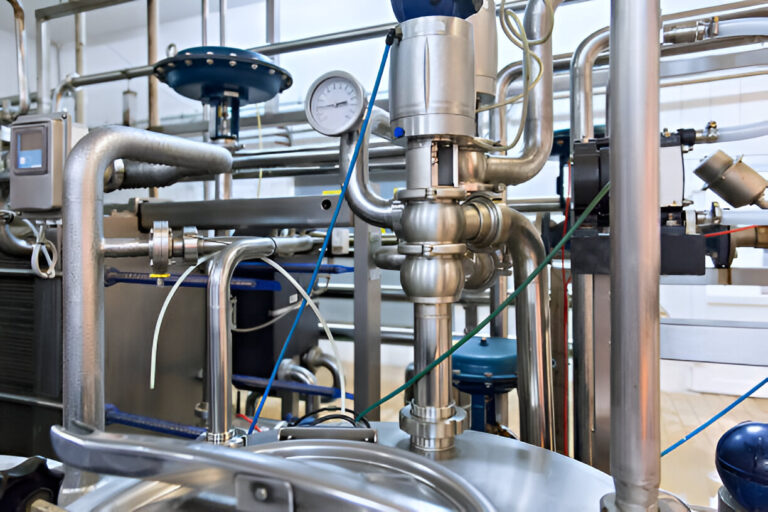Effective and dependable operations in many different sectors depend on the correct fluid processing equipment being chosen. The industrial mixer is among the most crucial parts of this process since it helps to provide consistently excellent results. Choosing the appropriate equipment calls for thorough evaluation of many elements, including operational criteria, material compatibility, and utility. This page explores the key factors to consider while selecting fluid processing equipment for your company.
Recognizing Your Operational Requirements
It is imperative to know the particular needs of your operations before choosing fluid processing equipment. Think about the kind of fluids you are handling, the ideal consistency, and the manufacturing volume. For instance, facilities managing viscous fluids or complicated mixtures could need specific tools to guarantee homogeneous mixing. Early identification of these criteria guarantees that the chosen equipment effectively satisfies your production goals and helps to restrict the choices.
Analyzing Equipment Fit-through
Selecting fluid processing equipment depends much on compatibility with the materials under processing. Different fluids have different chemical characteristics; so, the equipment has to be built to manage them without degrading or contaminating others. Because stainless steel resists corrosion, it is a typical material used in mixers and tanks. Making sure the industrial mixer and other parts fit your materials helps to avoid expensive downtime and increases equipment lifetime.
Thinking about Process Effectiveness
Since it directly affects production and cost-effectiveness, efficiency is absolutely vital in fluid processing. To maximize the process, the correct tools should give exact control over mixing rates, temperature management, and other factors. Many times, modern fluid processing systems use automated controls that maximize efficiency by reducing human involvement. Investing in sophisticated feature equipment will save a lot of time and money, hence it is a great addition to your institution.
Giving Durability and Maintenance Priority
Choosing fluid processing equipment requires a great deal of thought including durability. Good construction guarantees that the equipment will resist wear and tear over time and meet everyday use requirements. Furthermore considered should be maintenance needs in the choice. Equipment meant for low maintenance and simple cleaning helps to minimize operating interruptions and downtime. Regular maintenance plans also help to spot possible problems early on, so guaranteeing the dependability and lifetime of your investment.
Evaluating Consumption of Energy
For companies striving to increase sustainability and lower running costs, energy usage is becoming even more crucial. Depending on their design and operation, fluid processing equipment—especially mixers—can consume somewhat different amounts of energy. Choose energy-efficient solutions fit for the sustainability objectives of your building. These systems are a good option even if their initial cost may be more since their long-term energy cost savings and lower environmental effect justify them.
Verifying Scalability
Your production needs could rise as your company expands. Selecting scalable equipment guarantees that your operations may grow without having to rebuild your processing systems completely. Flexible layouts and modular designs permit simple updates or integration with other parts. Long term, an industrial mixer that fits higher capacity can save a lot of money and time by giving the flexibility required to change with the needs.
Confirming Compliance with Guidelines
Choosing fluid processing equipment cannot compromise compliance with industry norms and regulations. Equipment has to satisfy environmental, quality, and safety criteria to guarantee the integrity of your operations and the welfare of your staff. Working with trustworthy manufacturers that follow these guidelines ensures dependability and safety of the equipment. This not only guards your facilities but also helps to uphold your reputation for good operational standards.
Choosing appropriate fluid processing equipment is a difficult but vital process that affects the effectiveness and success of your activities. Careful evaluation of elements including compatibility, durability, and energy economy helps you to make sure the equipment satisfies the particular needs of your institution. Purchasing premium solutions like an industrial mixerimproves output as well as operational excellence and long-term cost savings. Your facility is positioned to satisfy present needs and change with the times depending on the correct tools in place.


